Miscellaneous - Vinyl Stories
by Dave Goodwin
published: 27 / 5 / 2020
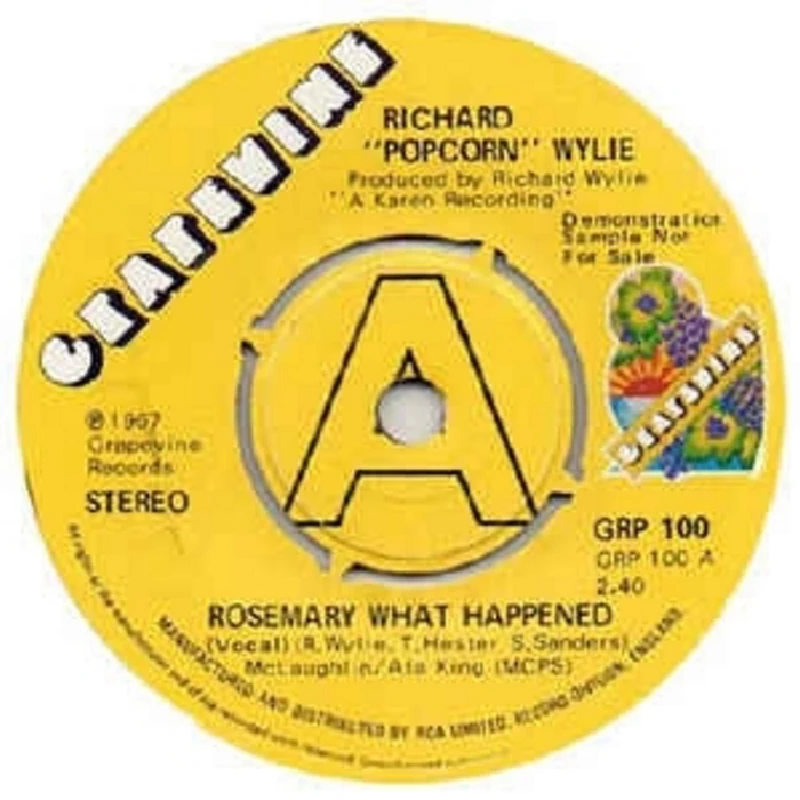
intro
Dave Goodwin and record collector Pete Smith share memories and essential tracks from Northern Soul imprint Grapevine Records.
This is the second part of a trilogy based on the stories and phenomenal knowledge of record dealer and collector Pete Smith of Planet Records. Last month he told us a little story about his collecting days. This month, we have put together an article that explains the bootlegs, the cover-ups and the plain record warfare that contributed to the wonderful world of Northern Soul. In Pete’s own words, this is Grapevine Records. In its 1970s heyday, Northern Soul was big business. Thousands of clubbers spent a small fortune travelling to venues across the Midlands and the North. Any money left over went on vinyl. The scene created some of the most expensive records of the era, but it wasn't just about top rarities. By the end of the 60s, a fully-fledged soul revival was underway. Contemporary Motown 45s were ignored in the rush for vintage Tamla 'hits', while independent labels like Sue and Soul City mixed freshly licensed imports with older classics. By the early 70s, the soul scene was dominated by re-releases. Jay Boy issued a string of dancefloor fillers, mostly from the Mirwood label. Mojo and Contempo concentrated on ultra-modern funk, but still found room for Northern Soul, like Tami Lynn's 'I'm Gonna Run Away From You', which charted twice (No. 4 in 1971 and No. 36 in 1975). Pye's Disco Demand imprint was equally successful. The label combined essential compilation LPs with novelty revivals, such as Wayne Gibson's 'Under My Thumb'. Black Magic capitalised on the interest in Dobie Gray's mid-60s obscurity, 'Out On The Floor’. Less enticing was the 'new' Northern Soul, whether that was Wigan's Ovation's pop, out and-out novelties like ‘Footsee' by Wigan's Chosen Few or the bland re-recordings of Northern favourites which blighted the otherwise worthy Casino Classics series. As the decade came to an end, other labels had arrived, such as Destiny, Soul Stop and Inferno, who compiled perhaps the most essential Northern Soul compilation, 'Out On The Floor'. Then there was Kent, of course, in the 1980s. Because these labels had hit-and-miss rosters, they attracted the scorn of diehards, who preferred to scour record bins for obscure US originals. However, in 1977, a label was founded which felt totally in tune with the Northern scene. Although its three-year output was patchy, it combined modern soul with classic Northern Soul rarities. Its name? Grapevine. Grapevine was the brainchild of John Anderson, a Glasgow-born soul collector exiled in Kings Lynn, Norfolk. John was the driving force behind importers Soul Bowl, who introduced DJs and fans to 70s Northern sounds. One of the first to make record buying trips to the US, he discovered many of the decade's top Northern Soul sounds. John built up an impressive contact list, including a Philadelphian named Bernie Binnick, who'd worked at Swan Records in the 60s – he licensed the Beatles ‘She Loves You’ from EMI in return for some Freddy Cannon and Three Degrees sides which ended up on EMI's Stateside imprint. A devoted soul fan, Binnick later branched out into the export business, which is how he met John Anderson. Both men had come across unissued recordings from the 60s, notably those produced by ex-Motown bandleader and Detroit producer Richard 'Popcorn' Wylie. Since Detroit 60s soul labels have a special significance on the Northern scene, Anderson knew there would be a huge demand for these tracks. In 1977, the two men founded the Grapevine label. One of Anderson's keenest customers was influential Northern Soul DJ Richard Searling, who worked in RCA's promotions department in Manchester. Searling persuaded his bosses that Grapevine could help them capitalise on a brand of music impossible to create in-house. A meeting was arranged in London's West End in January 1977 to finalise plans for the label – Grapevine found a distributor and manufacturer. Searling's role as a DJ was vital in spinning the label's forthcoming attractions to ready-made audiences at all-nighters. He'd play a new discovery at the Wigan Casino, and within two months, it would be available on Grapevine. Most Grapevine 45s sold 5,000+ copies, and some almost charted (Judy Street and the Del Capris came closest). Grapevine consistently supplied quality soul; no tailor-made Wigan's Ovation-type covers on this label. The label's critics hinted that Grapevine was merely a legalised bootlegging operation, like the infamous Sue label in the mid-60s. But this ill-informed view is complete nonsense. Grapevine was responsible for nearly 50 singles during its relatively short lifespan from June 1977 until summer 1980, plus three essential LPs which combined some of those singles with exclusive and often unissued tracks. What follows is a listing of all the Grapevine 7"s, with the recollections of the label's founder, John Anderson - who still runs Soul Bowl in Kings Lynn today. Below is a small list of some of the most important/weird offerings over the years starting with the very first recording to go on sale; GRP 100 – RICHARD WYLIE: ‘Rosemary What Happened’ Grapevine made a winning start with a slightly different mix of this sought-after item from Ollie MeLaughlin's Karen label in Detroit. Once mooted for reissue on Contempo, incidentally. Based around the film 'Rosemary's Baby', the song received a popular instrumental treatment on the flip. Wylie was one of Motown's first solo artists: he worked as producer and arranger on many of the great 60s Detroit recordings. GRP 105 – KEANYA COLLINS: ‘Barnabus Collins - Love Bandit’ Another eccentric choice, this smooth early 70s track concerned the antics of popular US TV vampire Barnabus Collins. Issued in the US on Ms Collins' own Keanya label, it had been available in 1975 via Simon Soussan's Soul Galore imprint. GRP 106 – JUDY STREET: ‘What’ A veritable monster sound at all-nighters in 1977, this was alleged to be Capitol artist Tina Mason – but it wasn't. Bootleggers tried to steal the thunder from the legitimate UK release but couldn't stop this becoming Grapevine's best-seller by a long chalk. 'What' was produced by H B Barnum and originally released on the US Strider label. It was covered later on in the early eighties by Soft Cell. GRP 116 – SAM WILLIAMS: ‘Love Slipped Through My Fingers’ An indulgence on my part as this is one of my all-time favourites on the Northern scene. Legal hassles apparently hampered sales of this brilliant, soulful number from Capitol's Tower label. EMI scheduled it for their 'Soul Casino' album, while Grapevine wanted it for a 45. The B-side was an unavailable mix of Towanda Barnes' A&M recording, 'You Don't Mean It'. GRP 120 – LARRY CLINTON: ‘She's Wanted In Three States’ Another incredibly rare record with a hefty price tag, this Eddie Holman co-composition originally appeared on the little-known Dynamo label (not the better-known New York Musicor subsidiary). Out-and-out Northern Soul music of the highest order, this may well be Grapevine's finest release. I’ve got this on the Sassy label. GRP 145 – DUKE BROWNER: ‘Crying Over You’ A Harry Balk-produced classic on the rare soul scene for over 20 years, this is pure Northern Soul, featuring strings, chimes and those all-important breaks for handclaps.
Picture Gallery:-
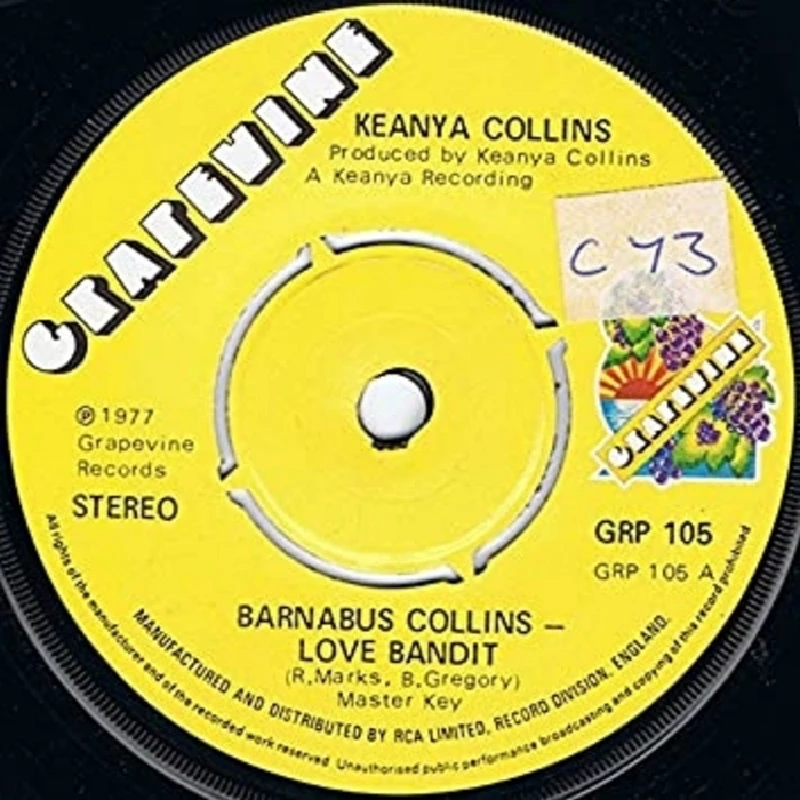
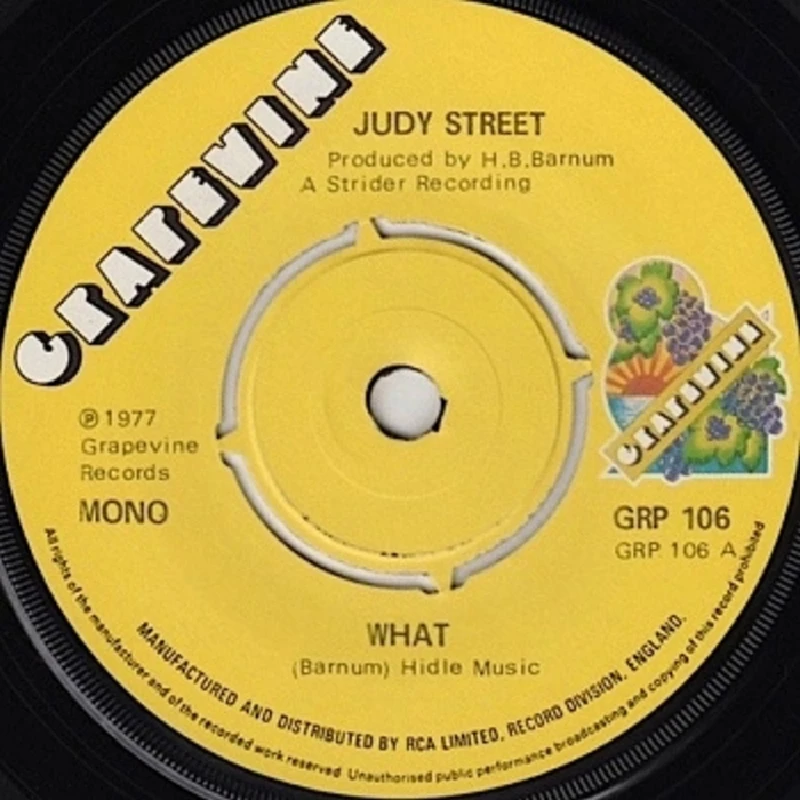
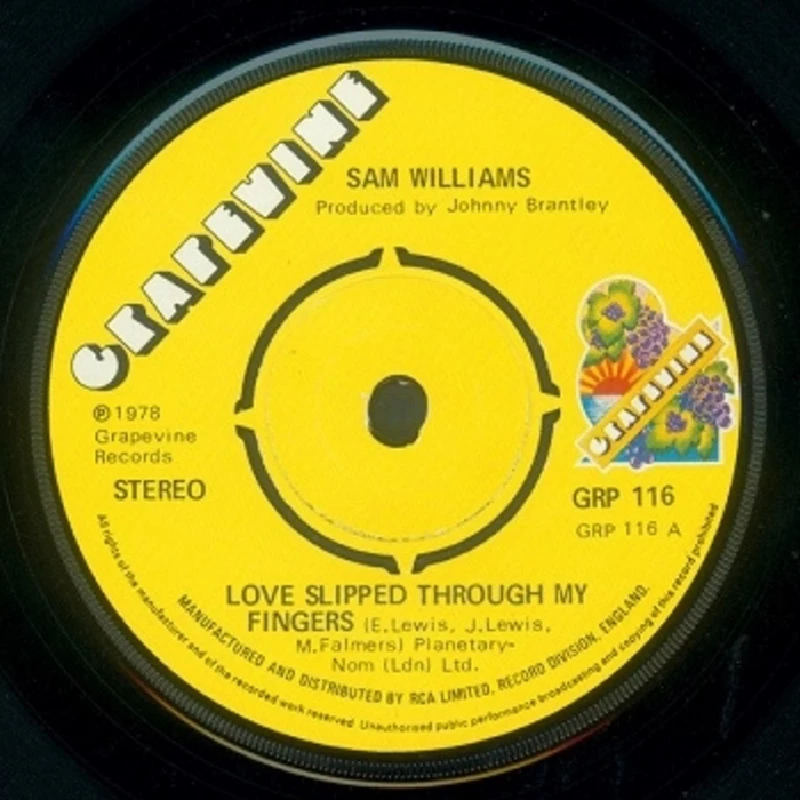
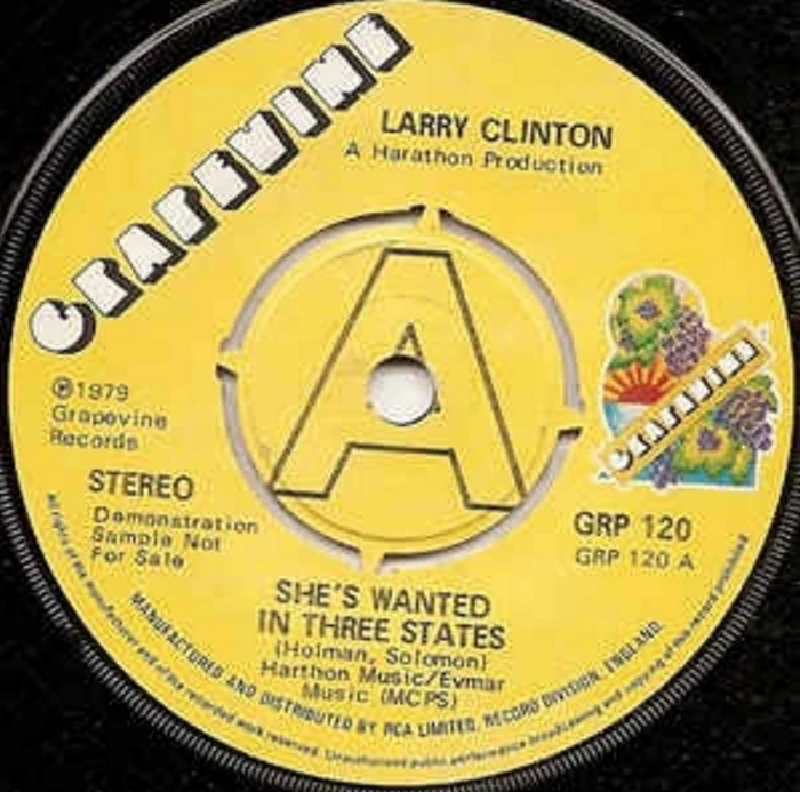
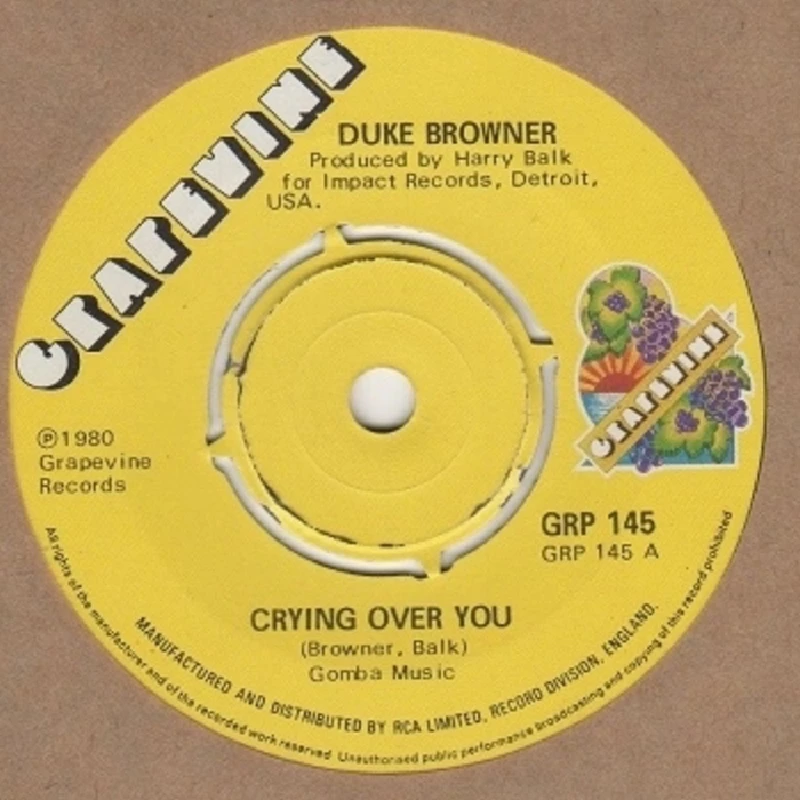
most viewed articles
previous editions
Cindy Smith Dunaway - InterviewAlice Cooper - 50th Anniversary of the Alice Cooper Group Original Line-Up Celebration Part 2
Stewart Copeland - The Invention of Morel, Chicago, Illinois, 24/2/2017
Bram Tchaikovsky - Profile
Harold F. Eggers - My Years with Townes Van Zandt: Music, Genius, and Rage
Asian Dub Foundation - Rafi's Revenge
Andy Whitehouse - Interview
Richard Hawley - Standing At The Sky’s Edge
Peter Doherty and The Puta Madres - Ritz, Manchester, 9/5/2019
Newton Faulkner - Photoscapes
most viewed reviews
current edition
Lapsley - I'm a Hurricane, I'm a Woman In LoveBlueboy - 2
Davey Woodward - Mumbo in the Jumbo
Philip Jeays - Victoria
Eddie Chacon - Lay Low
Suzanne Vega - Flying With Angels
Taylor Austin Dye - Sick of Me
Only Child - Holy Ghosts
Nigel Stonier - Wolf Notes
Cynthia Erivo - I Forgive You
Pennyblackmusic Regular Contributors
Adrian Janes
Amanda J. Window
Andrew Twambley
Anthony Dhanendran
Benjamin Howarth
Cila Warncke
Daniel Cressey
Darren Aston
Dastardly
Dave Goodwin
Denzil Watson
Dominic B. Simpson
Eoghan Lyng
Fiona Hutchings
Harry Sherriff
Helen Tipping
Jamie Rowland
John Clarkson
Julie Cruickshank
Kimberly Bright
Lisa Torem
Maarten Schiethart